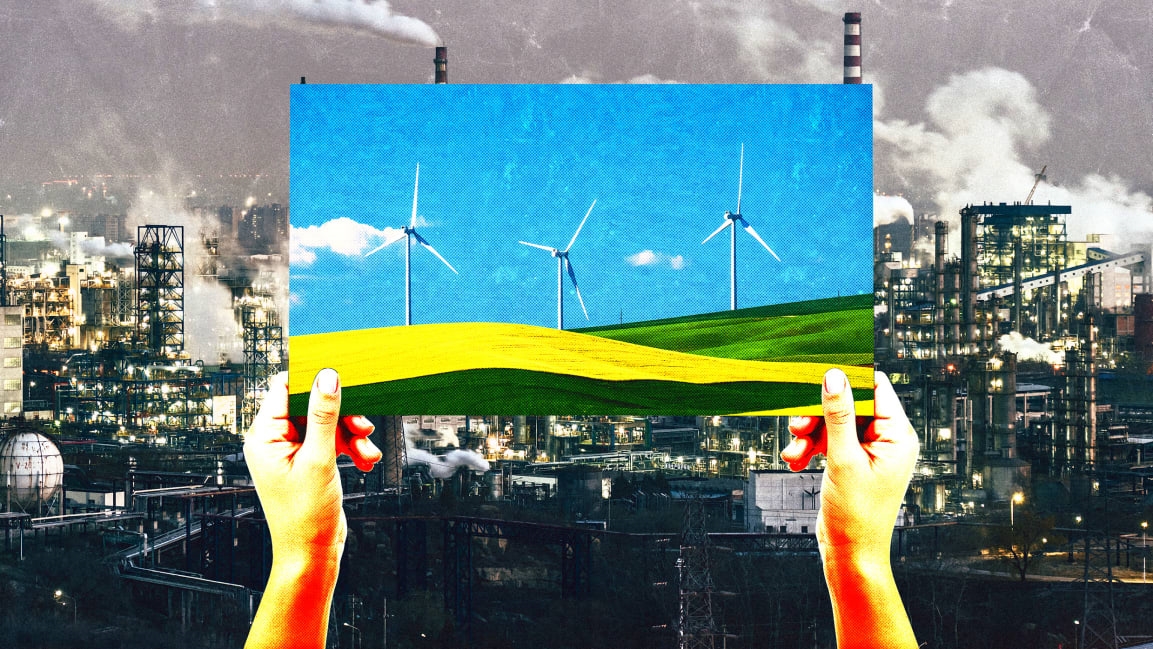June 14, 2022

More than 700 large public companies around the world, from Amazon and Apple to oil companies like ExxonMobil, now have targets to reach net zero emissions. That’s a 68% increase from the number that had made pledges just two years ago. But their plans aren’t strong enough yet to actually address climate change, according to a new report released at the current global climate talks in Germany.
In the report, four organizations took a look at the claims being made by the world’s 2,000 largest public companies, along with pledges announced by cities, states, and national governments. Globally, to have any chance of limiting warming to 1.5 degrees Celsius (the equivalent of 2.7 degrees Fahrenheit), society will need to reach net zero by the middle of the century, meaning any remaining human-caused emissions are balanced by nature or carbon-removal technology like direct air capture machines.
The number of net zero targets has “increased quite substantially,” says Frederic Hans, climate policy analyst at NewClimate Institute, a nonprofit that produced the report along with the Data-Driven EnviroLab, Oxford Net Zero, and the Energy & Climate Change Intelligence Unit. “But we still see this credibility gap—[there’s] a momentum of quantity, but not yet a momentum of quality. And that’s really where the emphasis needs to be now for the next steps forward.”
In some cases, companies have set a goal for 2050, but haven’t set interim goals aligned with the fact that global emissions need to drop nearly in half by 2030. Many haven’t shared their plan of action or how they’re going to measure progress in the short term. Companies also often aren’t transparent about what they consider “their” emissions; most experts argue that number should include “scope 3” emissions—the climate pollution from suppliers’ factories, customers using products, and other parts of the value chain.
Many companies also plan to rely heavily on carbon offsets rather than reducing emissions directly. (Those plans often sound implausible: The oil company Shell, for example, has said that it wants to plant trees covering an area the size of Brazil.) Around 40% of companies with net zero targets say that they plan to use offsets; fewer than 2% say that they won’t, and the rest haven’t yet been transparent about their plans.
All of these factors are needed to make credible pledges. “We sometimes get the question of what is the most important aspect of the net zero target,” says Hans. “And that’s basically impossible to answer because these aspects interlink.” In a deeper dive on the net zero targets of a small group of companies earlier this year, NewClimate Institute found that even companies that seem to be leading on climate action have weaknesses in their goals. Only a few, like the Danish shipping company Maersk, got a rating of “reasonable” integrity from the researchers in the previous report.
Companies need to do better, Hans says, and new regulations that require reporting emissions in a legally-binding way can help. Third-party analysis like the current report can also push companies to improve. But change will take time, and that’s something the climate can’t really afford.
“When we look at the scientific findings . . .released by the International Panel on Climate Change, emission reductions need to happen now, within the next five to seven years toward 2030,” says Hans. “There is no way of sort of postponing that action and just aiming to achieve net zero further down the line. It actually needs to happen now.”
(58)
Report Post






